Although Ad Libitum is my motto, even I am caught off guard sometimes. This series has almost reached 100 installments. One h-hundred! Scary. What on earth am I doing here?
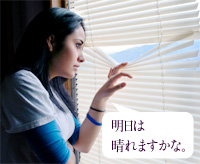
It all started two years ago, when I gave a lecture on character at a symposium held by the Society for Teaching Japanese as a Foreign Language. Ms. O at Sanseido Publishing brought up the subject of doing a series of columns, and I breezily accepted. So, each week I have been scratching out these ad-libbed columns little by little. And now we have almost reached 100. Scary.
So, why did I lecture on character at the Society for Teaching Japanese as a Foreign Language symposium?
The reason is that character poses a large problem for foreigners when they study Japanese. This is probably the foremost answer I give people when they ask, “Why do you think about characters?”
I met an excellent young student, Ms. L, who had passed the Level 1 Japanese Language Proficiency Test (1) . I will never forget the ennui of the moment when she said, quite seriously, “Will it be sunny tomorrow?” (Ashita wa haremasu ka na (2)). Ms. L, you’re too young to be a “senior citizen”!
The late Professor T constantly used “female” language, such as dame ne-e (that’s no good) and atsui waa (it’s hot)(3) . Even at the end, I don’t think he himself realized how much he had learned from his Japanese wife.
I had another excellent young student, Ms. H. She came to our graduate school in Japan, where she saw Mr. I, a Japanese student, and called to him:
“Boku, boku” (hey you)(4) .
Poor Mr I—treated like a “child.” These two eventually got married —this world is indeed a strange place.
And just because Kimutaku(5) uses ore (I-brusque) on the soaps, don’t think you can get away with using it in my class or anywhere else. But that’s enough of that. The wall around the Japanese-speaking community is thick indeed.
The reason you would call others omae (you) is that you yourself were habitually called omae by the “men” around you. I now sort of understand the travails that you go through.
And no, I’m not just talking about verbal characters. Let’s look at some expression characters as well. For example, one line from a certain novel goes: “A said, goggle-eyed (me o muite)……” From this alone, we can guess that A’s “class” is not very high. However, to a learner of Japanese, even one who studies quite a lot, this is not at all obvious. Of course, they understand that me o muite means to open ones eye’s wide in surprise or anger. They would not know that while a “lady of the house” character might, in consternation, “pronounce, with eyes wide open (me o mihiraite)……” she would usually not “say, goggle-eyed (me o muite)……”
Although this sort of thing poses a critical problem to learners of the Japanese language, Japanese teachers almost never teach it. That is to say, Japanese language instruction currently cannot handle it.
Why not? Of course, part of the blame should go to the state of the field of Japanese language instruction. In the present field of Japanese language teaching, there is very little awareness that “character poses large problems to foreigners when they study Japanese, and therefore something must be done.” At my aforementioned lecture, which truly was haphazard, so I don’t remember it very well, I think I probably focused on that point. No doubt.
However, there is another reason why Japanese language instruction currently does not teach about characters. Teachers of the Japanese language cannot teach about characters because characters have yet to be clearly defined; that is to say, research in this area has not advanced. The problem lies not only with Japanese language instruction, but also Japanese language research.
One of the reasons I deal with characters in particular has to do with their necessity and value to Japanese language instruction.
However, even laying aside the connection with Japanese language instruction, there is value in studying characters, especially verbal characters, to linguistic research. (To be continued)
* * *


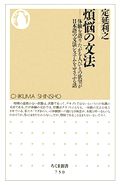
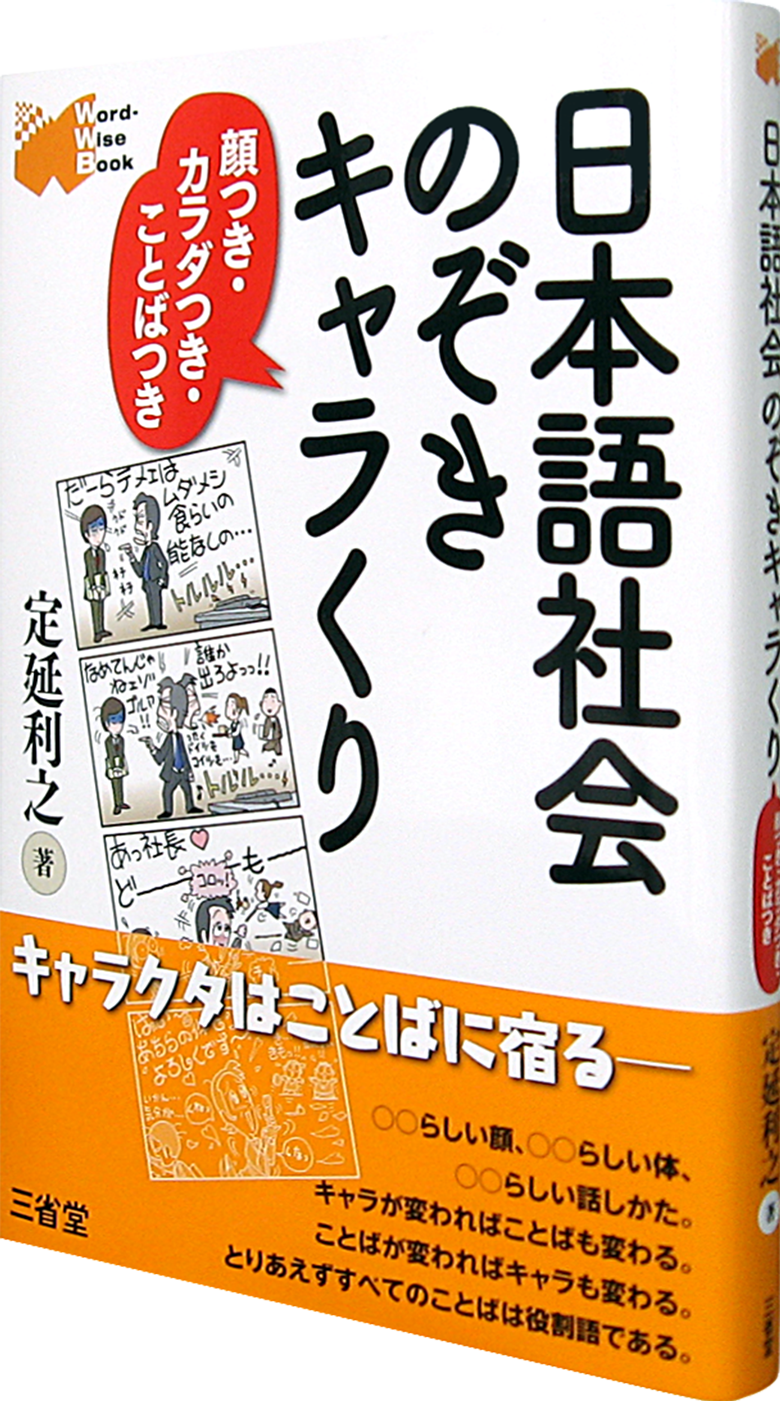
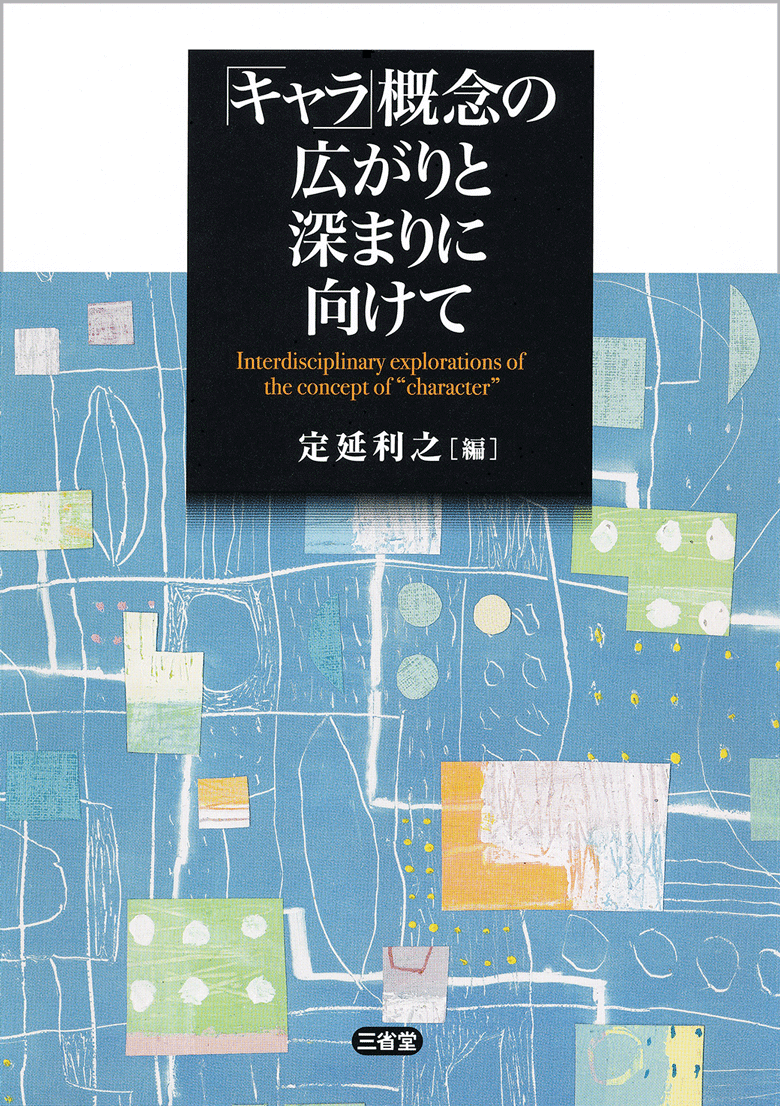

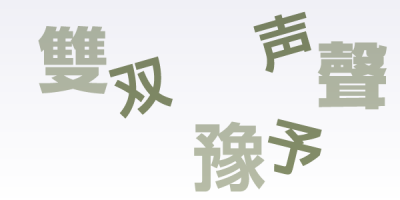
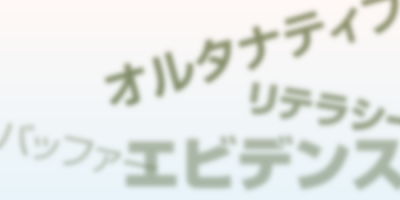

(1) A Japanese language test for non-native speakers. Under this system, Level 1 is the most difficult level.
(2) Again, na is usually only used by older Japanese.
(3) Similarly, ne-e and wa-a are generally only used by women.
(4) Boku literally means “I,” but it is often used to mean “you” when addressing very young boys.
(5) Nickname of Takuya Kimura, a pop singer and actor